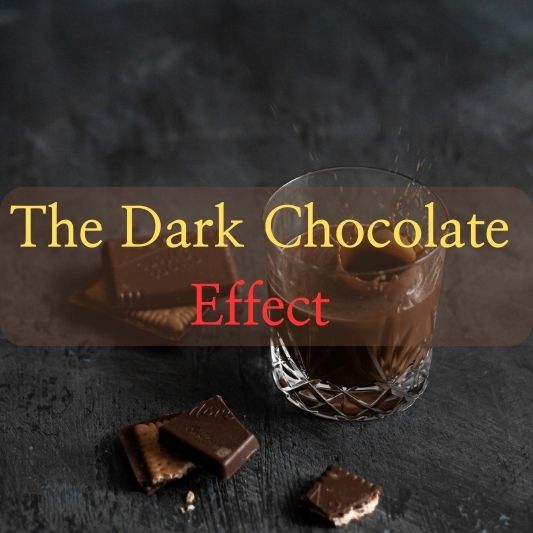Let’s look at the effect of dark chocolate on blood sugar. When it comes to indulging in sweet treats, dark chocolate has always had a unique allure. Its rich, bittersweet taste is a delight for the taste buds, but many wonder how it affects their blood sugar levels. In this article, we’ll delve into the impact of dark chocolate on blood sugar, exploring both its benefits and potential drawbacks.

What Makes Dark Chocolate Unique?
Dark chocolate is derived from the cocoa bean, and it contains a higher percentage of cocoa solids and lower amounts of sugar compared to its milk chocolate counterpart. This distinction is essential when considering its effects on blood sugar.
Understanding Blood Sugar
Before we explore how dark chocolate interacts with blood sugar, let’s briefly understand what blood sugar is. Blood sugar, or glucose, is the primary source of energy for our bodies. It’s regulated by the hormone insulin, which helps transport glucose from the bloodstream into cells for energy.
Dark Chocolate and Blood Sugar
The Glycemic Index (GI) Factor
Dark chocolate has a relatively low glycemic index (GI), which measures how quickly a food raises blood sugar levels. Foods with a low GI are absorbed slowly, causing a gradual rise in blood sugar. This means that consuming dark chocolate is less likely to lead to rapid spikes in blood sugar compared to high-GI foods like sugary snacks.
Flavanols: The Heroes of Dark Chocolate
Dark chocolate contains flavanols, natural compounds found in cocoa. Flavanols have been shown to improve insulin sensitivity, which can help lower blood sugar levels. However, it’s essential to choose high-quality dark chocolate with a cocoa content of at least 70% to reap these benefits.
Portion Control Matters
While dark chocolate may have potential blood sugar benefits, moderation is key. Excessive consumption can still lead to increased calorie intake and, consequently, weight gain, which may negatively affect blood sugar control.
Interactions with Medications
Individuals taking medications to regulate blood sugar levels should be cautious when consuming dark chocolate. It’s advisable to consult with a healthcare provider to understand how chocolate may interact with specific medications.
The Pleasure Factor
The Endorphin Boost
Dark chocolate has earned its reputation as a mood enhancer. It stimulates the release of endorphins, which can help reduce stress. Lowering stress levels indirectly contributes to better blood sugar control.
Savoring the Moment
The act of savoring a piece of dark chocolate can be a mindful experience. This can lead to a reduced desire for more sugary snacks, promoting better overall blood sugar management.
Conclusion
In conclusion, dark chocolate can have a relatively positive effect on blood sugar when consumed in moderation and as part of a balanced diet. Its low glycemic index and the presence of flavanols make it a potentially suitable choice for those looking to satisfy their sweet cravings without causing significant blood sugar spikes.
Remember, the key is moderation. While dark chocolate offers benefits, excessive consumption can lead to other health issues. Always consult with a healthcare provider, especially if you have diabetes or are taking medications that affect blood sugar levels.
FAQs
1. Can dark chocolate be included in a diabetic diet?
Yes, in moderation. Dark chocolate with a high cocoa content can be a part of a diabetic diet, but it’s crucial to monitor portion sizes.
2. How much dark chocolate is safe to consume daily?
It’s recommended to limit dark chocolate consumption to a small piece (about 1-1.5 ounces) per day to avoid excessive calorie intake.
3. Are all dark chocolates created equal in terms of blood sugar impact?
No, the quality of dark chocolate matters. Choose varieties with at least 70% cocoa content for the best potential blood sugar benefits.
4. Can dark chocolate replace diabetes medication?
Absolutely not. Dark chocolate should not be used as a replacement for prescribed diabetes medication. Consult with a healthcare provider for proper management.
5. Are there any contraindications for consuming dark chocolate?
Individuals with allergies to cocoa or other chocolate ingredients should avoid dark chocolate. Additionally, those with certain medical conditions or on specific medications should consult a healthcare provider before indulging.
Find out the price of dark chocolate on iHub!
Find out about biotin effects!
